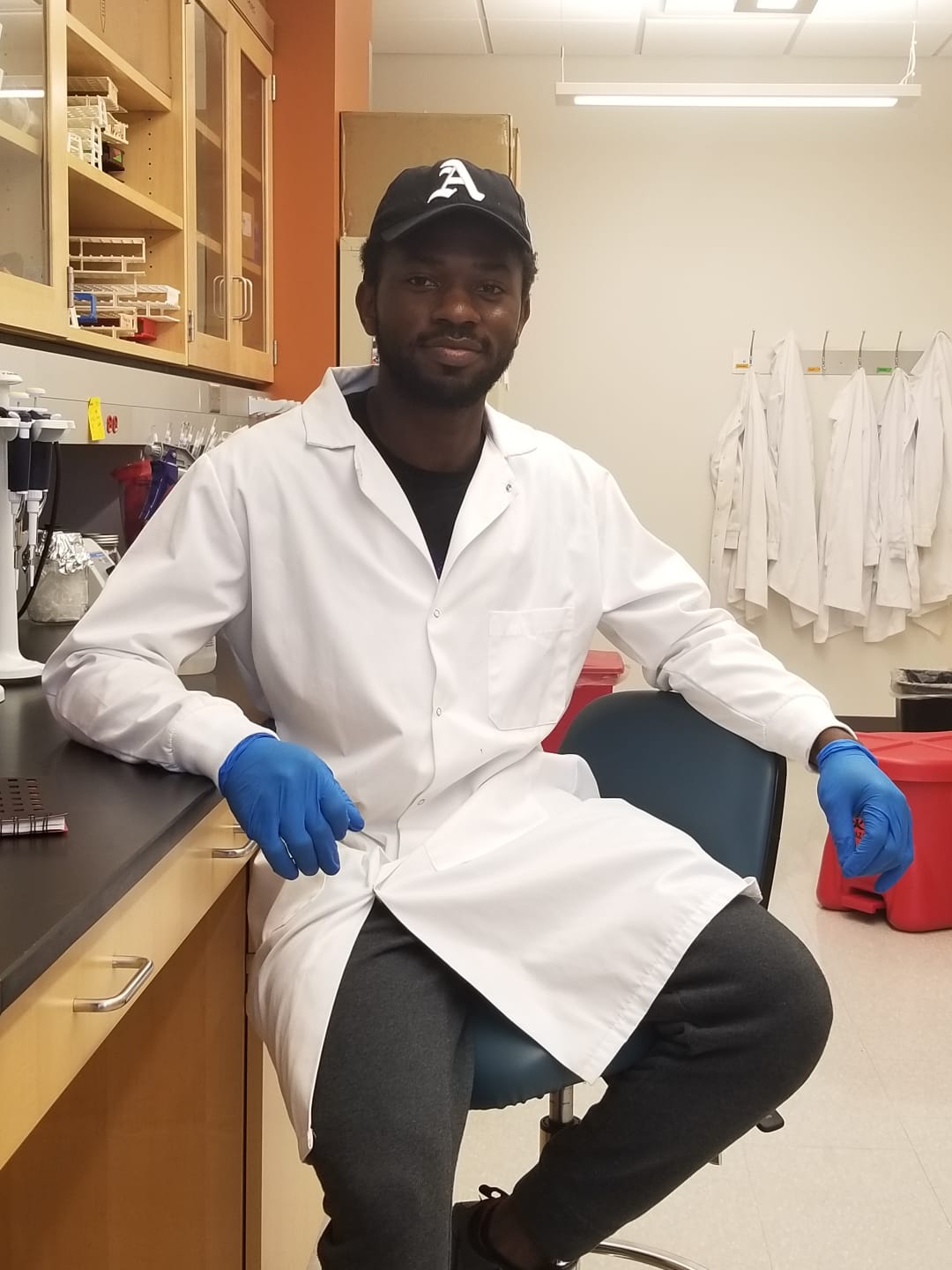This is a continuation of our "IANR is Global" series, which highlights the many ways internationalization is woven through the Institute of Agriculture and Natural Resources: through research collaboration, government and private industry partnerships, extension work, student educational experiences and the IANR community from around the world.
This edition is specifically focused on the many diverse individuals with experience from around the world who are graduating this year and last year. Cyril Nsom Ayuk Etaka, a native of Cameroon, received his master’s degree in food science and technology during this month's ceremonies. We appreciate the community we are fortunate to have from all over the world, as shown by their many and varied contributions to the work of the university and our continued mission to create a globally engaged institution. To this end, we want to help our campus community get to know each other (and the world) more, starting with these individuals.
How did your first get interested in your field? What was your previous education?
My undergraduate degree was in Agriculture at the University of Buea – Cameroon. This major entailed doing some farm practice where we handled lots of pesticides and were always cautioned about the dose to apply on crops for effective pest control. Paying attention to dosage of chemical pesticides was also important to avoid any toxic effects on the consumer. I was particularly interested in the toxic effects on humans as well as food safety regulations surrounding the application of certain chemical pesticides. I one day stumbled on produce in the market that had visible patches of pesticides on them and was concerned about that. That was the beginning of my interest in food safety. After my undergraduate degree, I proceeded to do master’s in standards and quality control at the University of Dschang – Cameroon in pursuit of my interest in food safety. There I was introduced to food microbiology and did more courses on food safety regulations. At that point I was sure that I wanted to continue in the Food Science field.
Tell me about your path to Nebraska.
It is an interesting one. In 2018, I got an email from the U.S. embassy telling me to apply for the Fulbright Foreign Student Program/ Fulbright Scholarship. This was after I had reached out to them in the previous year to enquire if they were open to receive applications for the Fulbright Scholarship. Unfortunately, the deadline had passed so them reaching in the following year to notify me came as a surprise. But I applied for it, went through the selection process, and got admission at the University of Nebraska-Lincoln in the Food Science Department.
What have been some challenges you’ve faced here? Opportunities? Things that surprised you.
The major challenge was moving far from my family because I have never been this far away from them. But there is always that time in life where the pursuit of our dreams takes us far away from those we love. I still stay in contact with home. Thank goodness for modern technology that allows us to chat via video calls. I also had a hard time grasping some concepts in my course work and my skills in microbiology were not as good. Also, I had a hard time communicating my ideas cogently. So, I worked harder and organized more, and the fact that I am graduating tells me progress was made. Through my research and continuous mentoring by my advisor I got an opportunity to do a PhD after my master’s degree, which I am excited about.
Who was your advisor? Anything you’d like to share about them? Or say to them?
My advisor is Dr. Byron Chaves, whose area of expertise is microbial food safety especially food of animal origin. He also does extension activities that entail working closely with the Nebraska food industry to improve microbial safety and protect public health. He has been impactful in my life because had he not decided to select me to work in his lab, I wouldn’t have had the opportunity to pursue my master’s degree in the U.S. This is because one only gets the Fulbright scholarship and gets to travel if there is a host institution that has accepted them. So, I am grateful that he took me as a student.
What do you plan to do now? What are your future goals/plans?
The next step is to do a PhD in food science at the Virginia Polytechnic Institute and State University. I am very excited about that. After my degree, I intend to get industry experience, so I will apply for jobs. Besides industry, I hope to one day own a food safety consultation where I can provide training services and food safety advise to parties wishing to comply with or understand certain food safety regulations.
How has your time at Nebraska impacted you in what you will go on to do?
My understanding of food safety regulations has been changed, as I have come to see that standards are very different across countries. I have also had the opportunity to improve on my research and scientific writing skills, which I believe will only get better as I continue to my PhD. Finally, I can properly communicate ideas to the public, which will be helpful as I seek to join industry after my PhD and to someday start a business that involves training people.
---
Are you or someone you know graduating this year (or the future) and have an international element to your work, studies or experiences you'd like to see highlighted? Contact Brianne at bwolf4@unl.edu.
